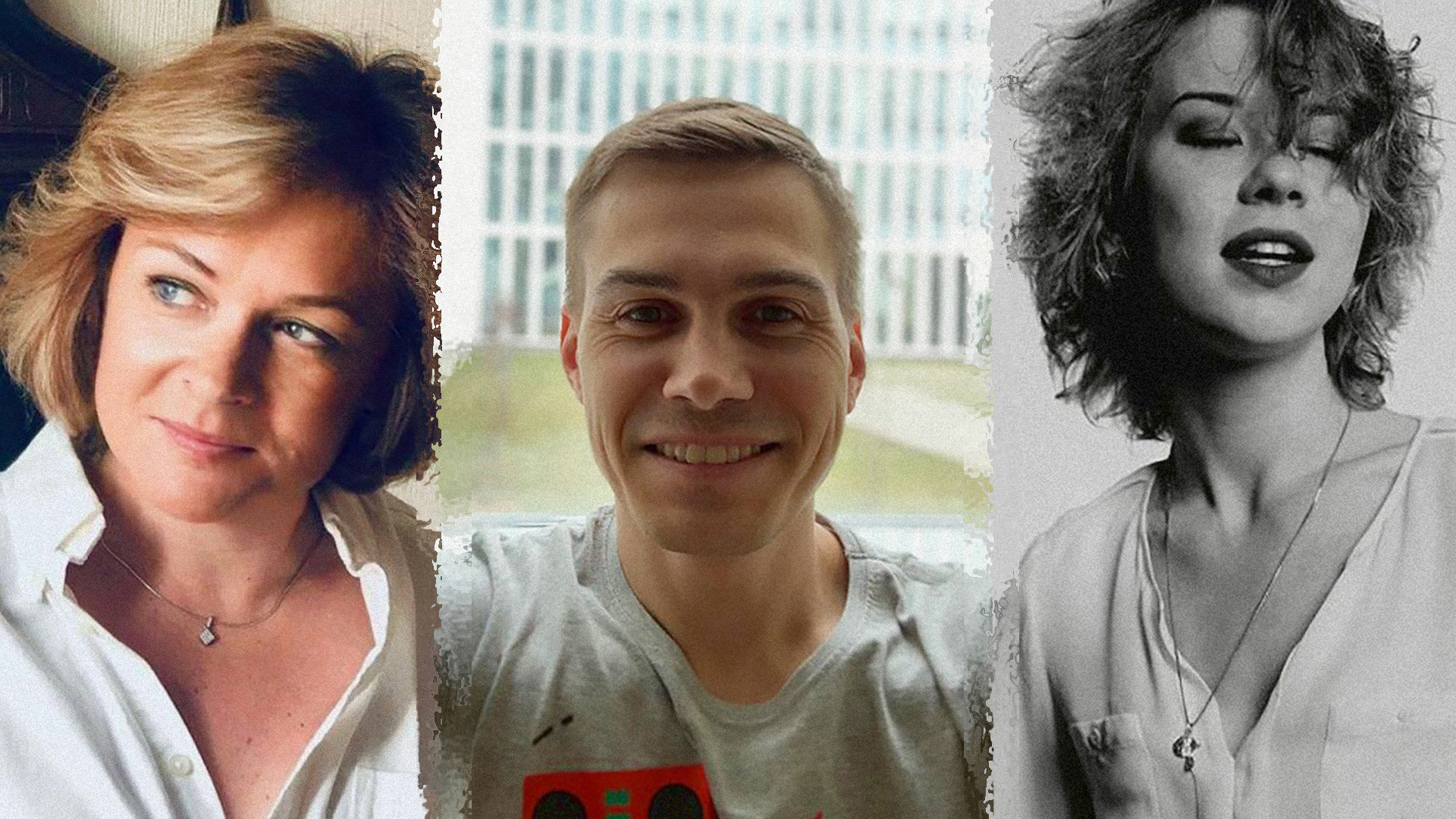
As of March 25, 495 were infected with coronavirus in Russia, and 22 people had recovered. In Moscow, there were 290 patients, nine of whom had already been discharged from the hospital.
I went skiing to Austria and got back on March 8. In the evening that same day, my temperature rose to 37.6C. I called the doctor. He arrived and took a swab. A day later, he came again and took a second swab. The next day, they called me and said that they “don’t like” the analysis results and that an ambulance would come and take me to the hospital. They asked whether I had any dependent children living with me. I have two sons, 11 and 17 years old. So they came and took us all away.

On arrival at the hospital, they carried out a series of tests and immediately prescribed antibiotics. The kids were stuffed with antiviral pills. Nothing was said about the test results. We got fed reasonably well, had food delivered to a special compartment inside the ward for me to take. Bascially, there was no living contact with the outside world. All the doctors were wearing PPE suits, I wasn’t allowed out.
It was only on day eight, after more tests, that I found out that my children and I had coronavirus.
I was surprised that my children were also infected. At home, I had really tried to follow the safety precautions — I had a separate towel, cup, spoon, plate, etc. I wore a mask when I left my bedroom and washed my hands every second. All taps and handles I wiped with alcohol. But they somehow picked it up. So we were all put on a course of antibiotics and drip feeds.
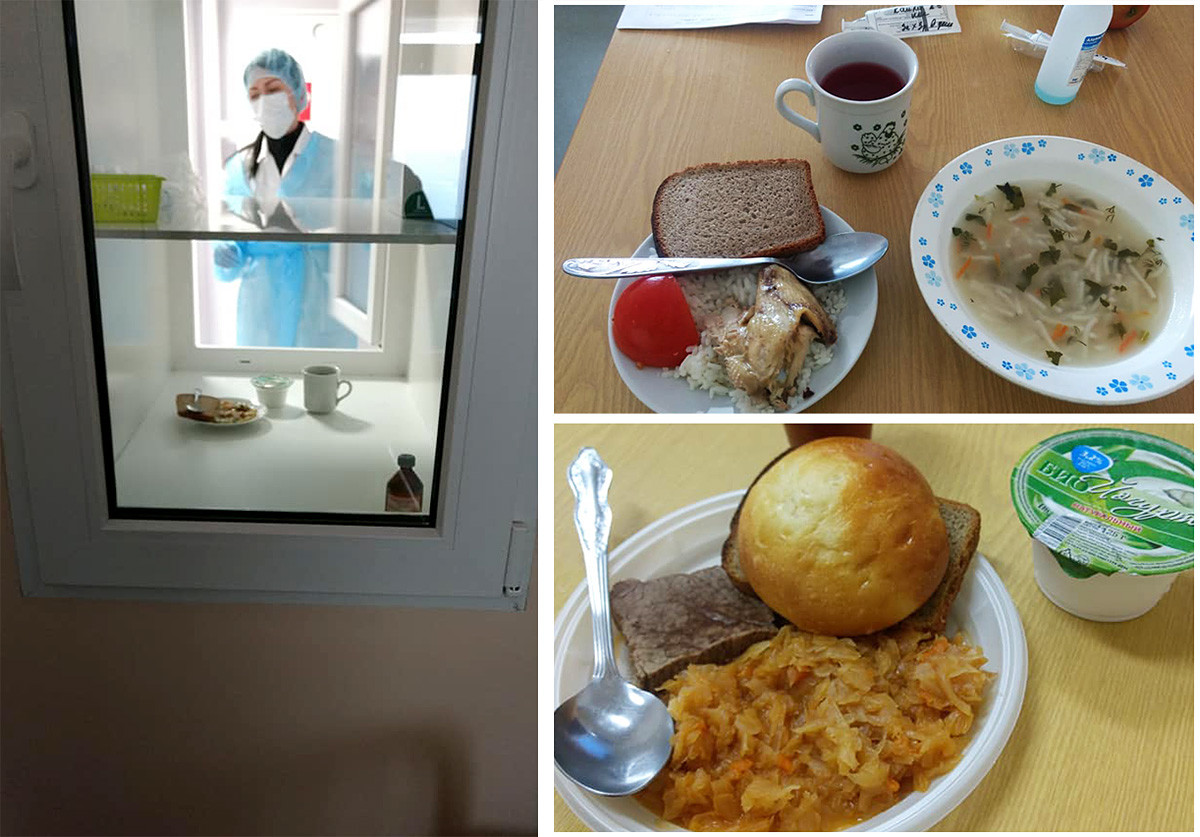
I asked to be separated from my children right from the start. As such, we are in the same hospital, but different isolation wards. The children still aren’t showing any symptoms of the disease, but in any case we communicate only by phone.
The hardest time in quarantine is Sunday, when everything is even quieter than usual. You start wondering how on Earth to occupy yourself as soon as breakfast is over and lunch is still a long way off.
As my condition improved, I began doing exercises. Breathing, to begin with. I don’t understand anything yet, but I’m carefully following the training videos on YouTube. I’ve also started doing pilates-type workouts. I won’t say how much, but I hope it helps. As for brain activity, it’s just books and movies, I finally got to see Parasite.
After a few days, the doctor told me that the hospital had set up its own coronavirus testing lab — before that, everything had to be sent to Novosibirsk, so the results took a long time to get.
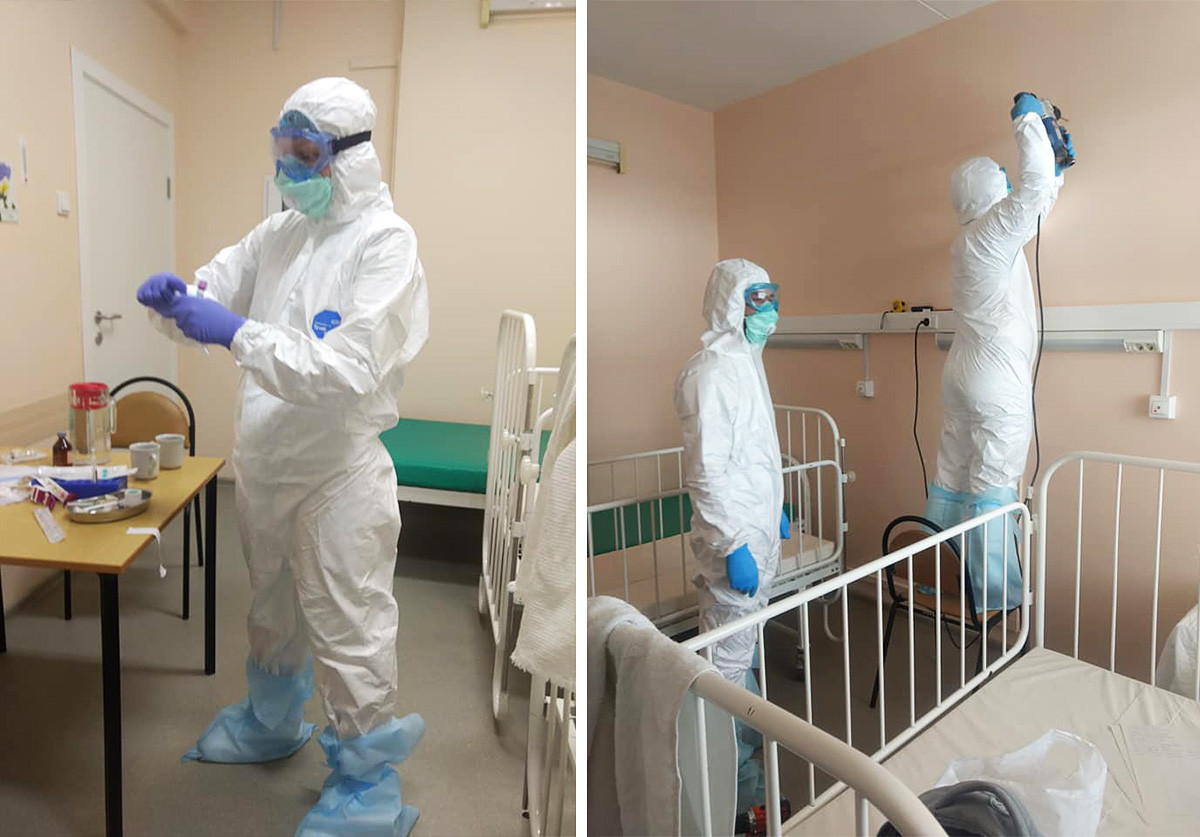
I don’t feel sorry for myself, just for the doctors and nurses. They have to wear uncomfortable biohazard gear and disinfect their masks with bleach, which stings their eyes.
This is my third week in the hospital, my kids and I have pretty much recovered. But before being discharged, we still have to test negative for coronavirus. That’s what we’re waiting for.
At the end of the treatment, two men came in and for some reason installed an air recirculation irradiator in the room.
“We already hung these up on the 17th and 18th floors,” said the men, “and there are no ill people left there.”
“I don’t want to ask, but where have they gone?” I ask anyway.
They roar with laughter. I’m desperate to get home.
My wife and I flew back from Barcelona no March 10. There was no control at the airport, temperatures were not being taken. We walked straight through passport control and out of the airport.
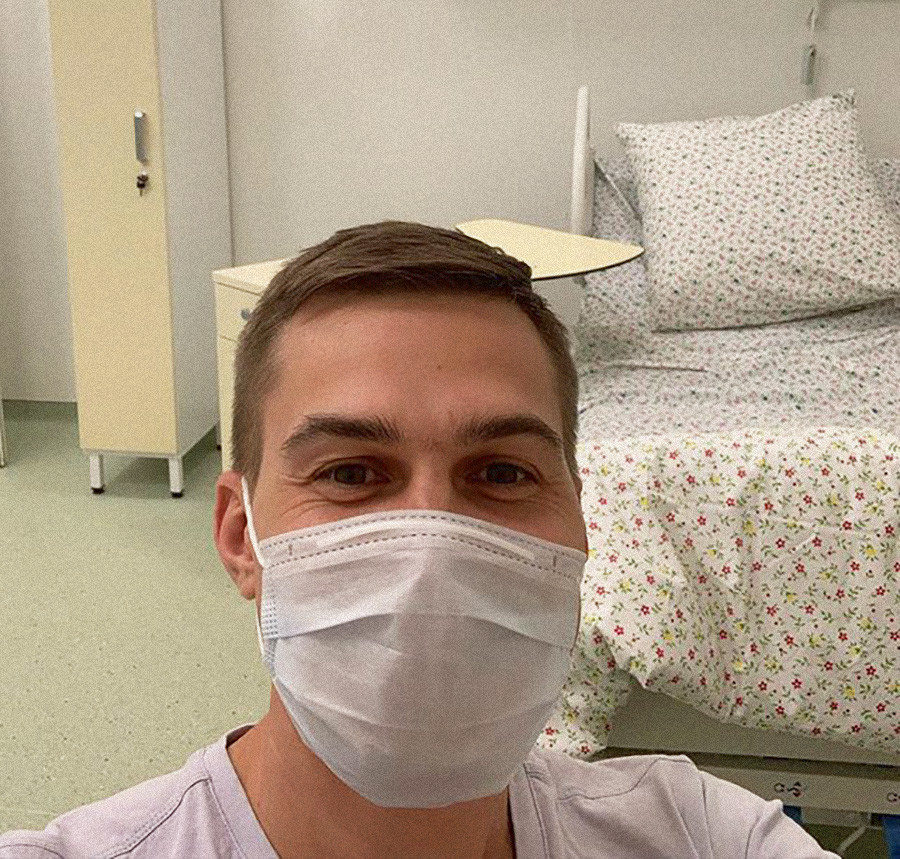
On March 13, my temperature rose to 38.3C, and I had a runny nose. I immediately called the government hotline, then an ambulance. They came, took some samples, and left. On the 15th I was informed that I’d tested positive for coronavirus. That same day, I was taken to the hospital. My wife, however, was negative. She’d been in self-isolation all the time, as of yesterday she can finally go outside.
The first week, I was hardly treated at all. I just lay in the hospital bed, ate, watched TV, skyped an English tutor, messaged friends. On Sunday, March 22, they gave me the drug ribavirin, which is most often taken for hepatitis C. The dosage was five times higher than the norm: ten tablets at a time instead of two. Even the nurse was surprised by the dosage. She asked the on-duty doctor about it, but he confirmed there was no mistake.

People in the hospital have their own chat forum where they discuss problems — there are already 90 users. They complain that even two tablets cause backache, fatigue, and dry eyes. Plus they can only have protected sex for six months afterwards, and my wife and I wanted children.
Because of this, I decided not to take the pills. The attending physician returned on Monday, and agreed that I didn’t need to take them as my condition had improved. He offered an alternative: arbidol. I still haven’t taken that either, because I think I’ve already recovered by myself. It seems that my organism has dealt with coronavirus, and there’s no need for external interference.
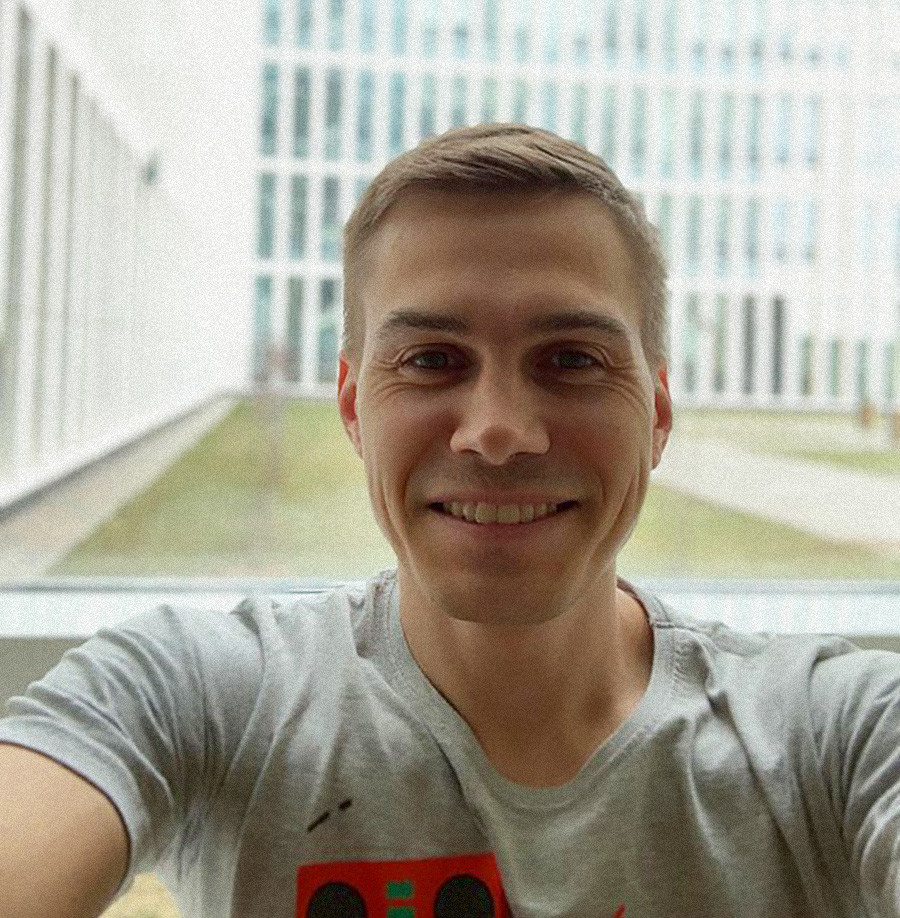
On March 24, I was tested again for coronavirus. If it comes back negative, there’ll be another on the 29th. After two negative tests, I’ll be discharged. I hope to see my wife again soon.
I’m taking professional courses abroad, so I travel a lot to Europe. Sure, I was very worried about picking up the virus over there. When the Berlinale kicked off, every cough and sneeze in the hall had people’s hearts in their mouths. Then we left for London. There in the island kingdom things didn’t seem so scary. The city was in full swing: pubs, musicals, no masks — only hand gels everywhere. But suddenly at the end of our stay, we were told that the study program had been suspended and we had to return home. I went into amber alert mode. Every time I bought a ticket, the flight got cancelled, the stress was unbearable. I finally got a connecting flight to Helsinki, during which my temperature rose. I decided it was a result of frayed nerves.

I arrived at Sheremetyevo Airport in Moscow on March 17. Everyone had their temperature taken inside the plane. Mine had already dropped a bit. We were then told to fill out some forms. The workers in special suits were clearly bored. I took the form to the “lab assistants” and asked them to test me. They took throat and nose swabs and told me to quarantine myself.
I stayed in self-isolation at home until March 22. After a while, I began to show signs of acute respiratory infection, nothing more. An ambulance came that day and took me to the hospital, saying I’d tested positive. There, they took more swabs and gave me a sedative.
On the night of March 22-23, my temperature rose to 38.4C. I had a hard persistent cough, enough to wrench your jaw off. There was no way I could sleep, I just kept constantly checking my saliva for traces of blood. My throat felt like a piece of meat.
At some point, I couldn’t take it any more and pressed the red button. A couple of perky paramedics came in and hooked me up to a drip. The needle really hurt when it went in, I thought I would faint. I burst into tears and said I didn’t need anything.
The same guys came back in the morning to measure my temperature. It was now 37.6C. The whole next day I spent asleep. But when I woke up, I was coughing up even more phlegm.
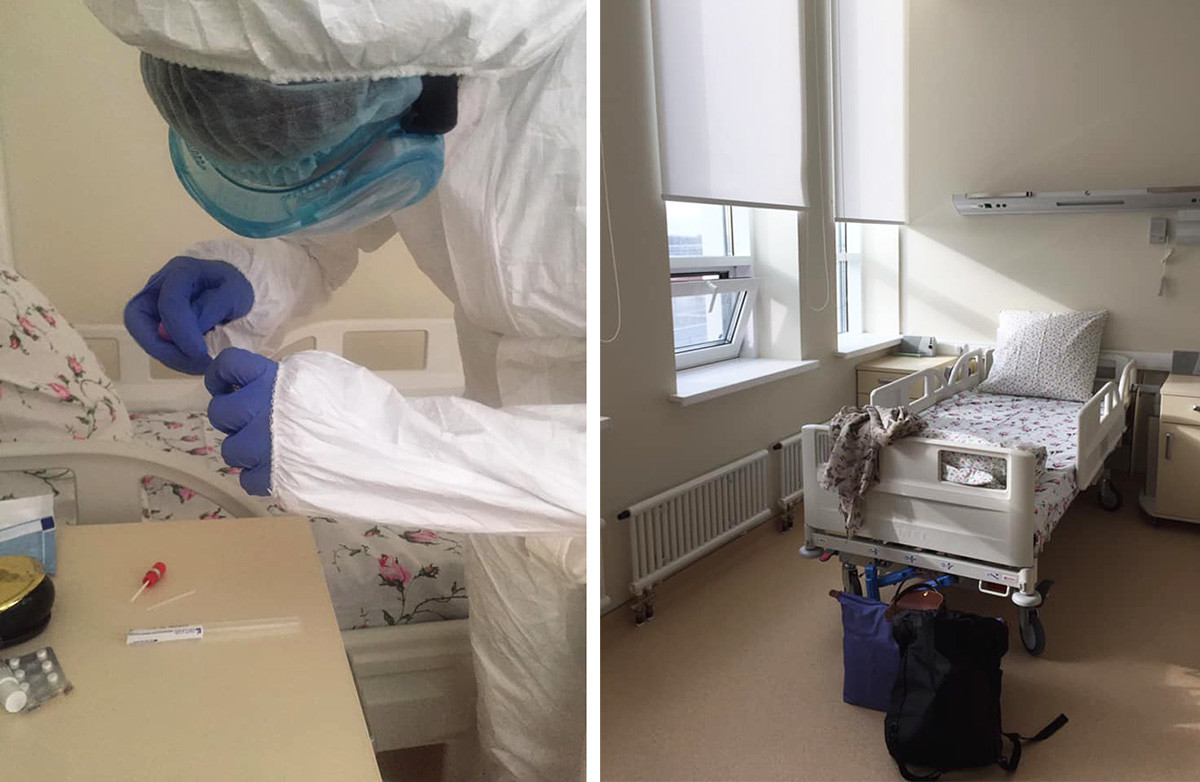
Then I had trouble with my bowels, so I had to skip lunch that day. My aunt brought bananas, tangerines, and chocolate in the evening, which the medics passed on to me — whenever I get sick, chocolate is the best medicine.
On March 23, I was told that in addition to coronavirus I had pneumonia. In the evening, I was put on a course of antibiotics and azithromycin. The nurses and doctors were really attentive. They often came to check up on me, set up Wi-Fi, and even promised to do something about the room temperature, because it was very stuffy.
On March 24, at 6am no less, they put me on a second drip. My cough subsided a bit.
My temperature is 37C, but I feel terribly weak and lethargic, I want to sleep all the time and can’t sit normally. The doctor says I’m suffering from intoxication after high fever. My appetite has disappeared somewhere.
I don’t eat meat or dairy products, but here I get fed with milk — they just leave this for-me-undrinkable stuff on the table. I was told that my diet wouldn’t be taken into consideration, so I was expecting it. Fortunately, friends and family bring fruit, so things aren’t too bad. But the vegetarian dishes are very tasty. Everything is served in vacuum packs with disposable cutlery and cups.
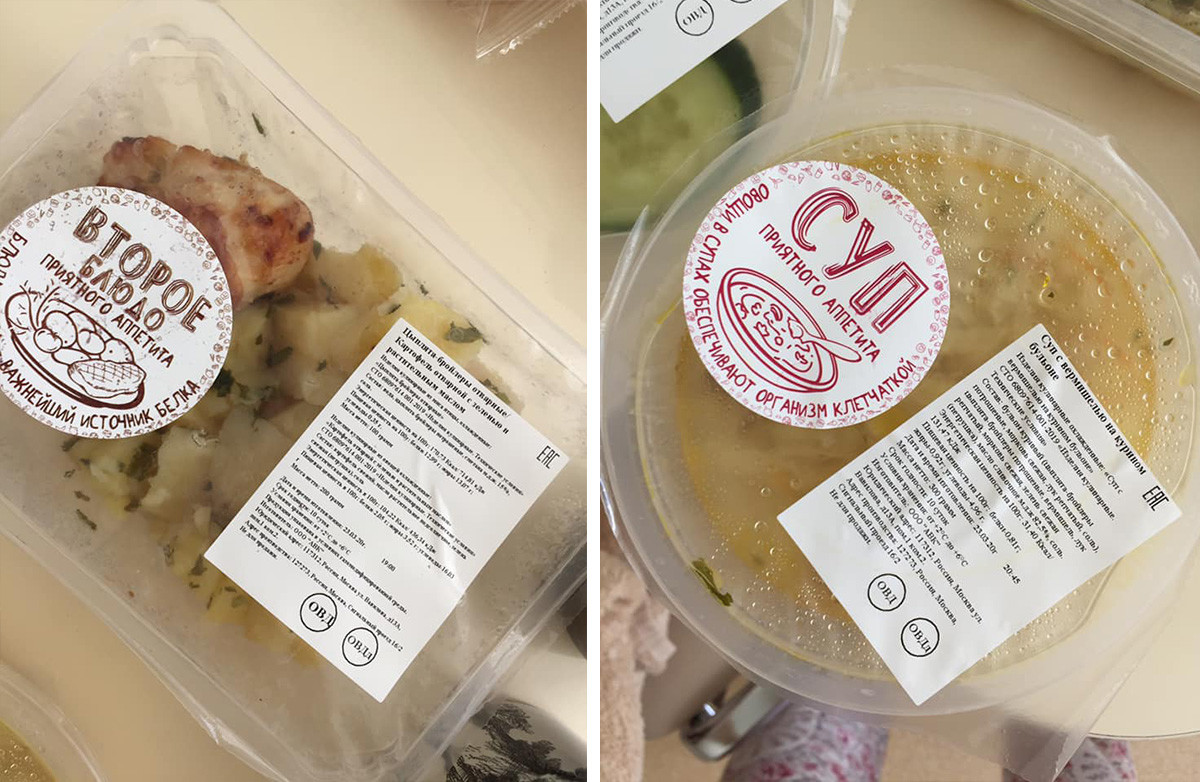
To be honest, I don’t have the strength to watch movies or read, even sitting still is difficult. I’m on three drips a day. As soon as things get better, I hope to try to listen to some classes, my coursemates have always switched to online study, and I don’t want to fall behind.
On March 1, 2020, the Russian health authorities confirmed the first case of coronavirus in Moscow. The sick man was Russian citizen David Berov, recently returned from Italy. Here’s what Berov himself wrote about his quarantine experience.
“I was put in a general ward at the First Moscow Hospital for Infectious Diseases. Yes, there are many different patients there. Before that, I’d been in contact with only a few family members. All of them are now quarantined in hospitals. They weren’t and aren’t showing any symptoms of the disease. Their initial tests were negative.
There are issues about how the quarantine process is handled. First, they phoned my relatives and said they’d test me at home. They came and said I was positive (although back then there was no information about the illness). They forced me to go to the infectious diseases hospital with a police escort, where I was shut up in an isolation ward,” says Berov in Instagram.
On March 5, Berov’s third test for coronavirus came out positive.
“It wasn’t in the blood, but the saliva. Only a weak trace, they said, which is why they hadn’t been sure for so long. I was prescribed symptomatic treatment, that is, they only treat the symptoms. In my case, it’s a mild cough, everything else is fine. My high temperature is long gone. Generally I feel OK,” Berov wrote.
On March 7, he was discharged from the hospital. Later, Berov gave an interview with the online publication Lenta.ru, in which he talked about the care he received in the hospital and his general well-being.
“They treated me very well in the hospital. The medical staff were attentive and considerate. <...> I thought I just had a mild cold. To be honest, I still don’t really know what I was ill with. After all, I’d also tested negative for coronavirus,” Berov said.
He has since returned to work, and his mother has gone to Crimea to see her parents and “breathe some fresh air.” Despite his mild symptoms, he still believes that coronavirus is something to fear.
“I can’t and won’t say that people are overacting. My story is simply my story, but maybe it’s helped someone to calm down a bit. In my case, my immunity was stronger than the infection. But generally speaking, we are not in control of our bodies. All around us are so many different viruses and microorganisms. Who knows which of them we’ll run into, how and when, and what the consequences will be,” sums up Berov.
If using any of Russia Beyond's content, partly or in full, always provide an active hyperlink to the original material.
Subscribe
to our newsletter!
Get the week's best stories straight to your inbox